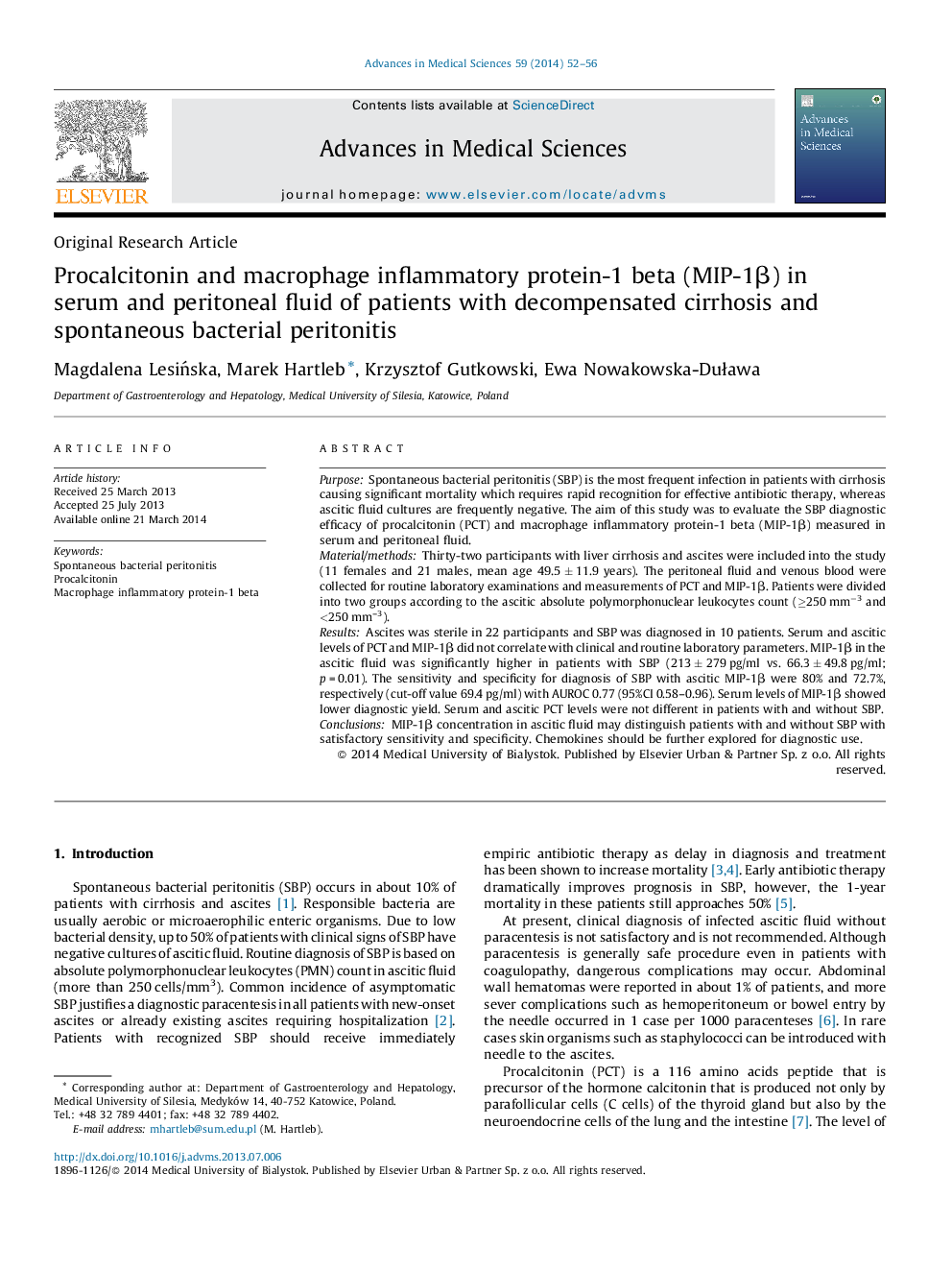| Article ID | Journal | Published Year | Pages | File Type |
|---|---|---|---|---|
| 2032032 | Advances in Medical Sciences | 2014 | 5 Pages |
PurposeSpontaneous bacterial peritonitis (SBP) is the most frequent infection in patients with cirrhosis causing significant mortality which requires rapid recognition for effective antibiotic therapy, whereas ascitic fluid cultures are frequently negative. The aim of this study was to evaluate the SBP diagnostic efficacy of procalcitonin (PCT) and macrophage inflammatory protein-1 beta (MIP-1β) measured in serum and peritoneal fluid.Material/methodsThirty-two participants with liver cirrhosis and ascites were included into the study (11 females and 21 males, mean age 49.5 ± 11.9 years). The peritoneal fluid and venous blood were collected for routine laboratory examinations and measurements of PCT and MIP-1β. Patients were divided into two groups according to the ascitic absolute polymorphonuclear leukocytes count (≥250 mm−3 and <250 mm–3).ResultsAscites was sterile in 22 participants and SBP was diagnosed in 10 patients. Serum and ascitic levels of PCT and MIP-1β did not correlate with clinical and routine laboratory parameters. MIP-1β in the ascitic fluid was significantly higher in patients with SBP (213 ± 279 pg/ml vs. 66.3 ± 49.8 pg/ml; p = 0.01). The sensitivity and specificity for diagnosis of SBP with ascitic MIP-1β were 80% and 72.7%, respectively (cut-off value 69.4 pg/ml) with AUROC 0.77 (95%CI 0.58–0.96). Serum levels of MIP-1β showed lower diagnostic yield. Serum and ascitic PCT levels were not different in patients with and without SBP.ConclusionsMIP-1β concentration in ascitic fluid may distinguish patients with and without SBP with satisfactory sensitivity and specificity. Chemokines should be further explored for diagnostic use.
